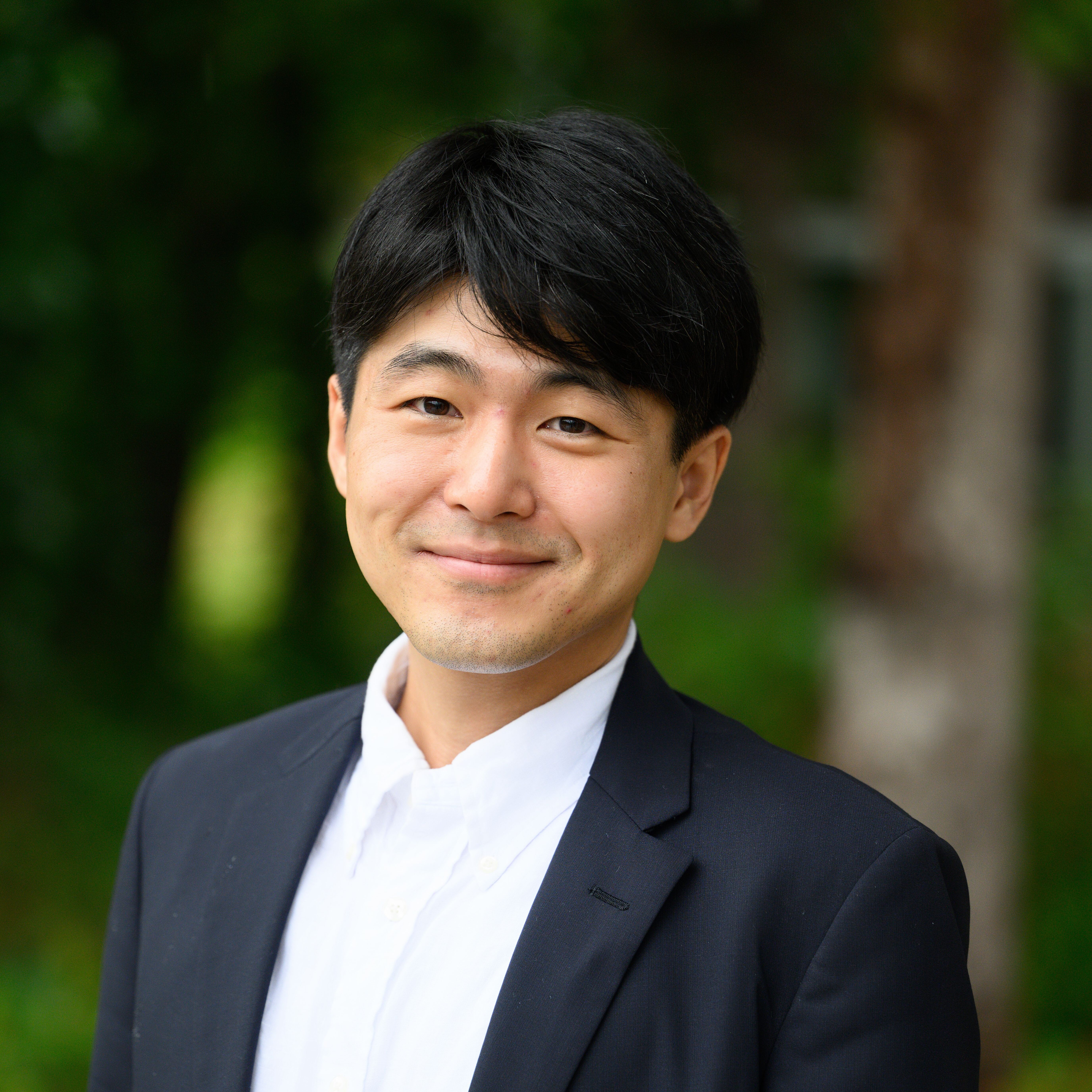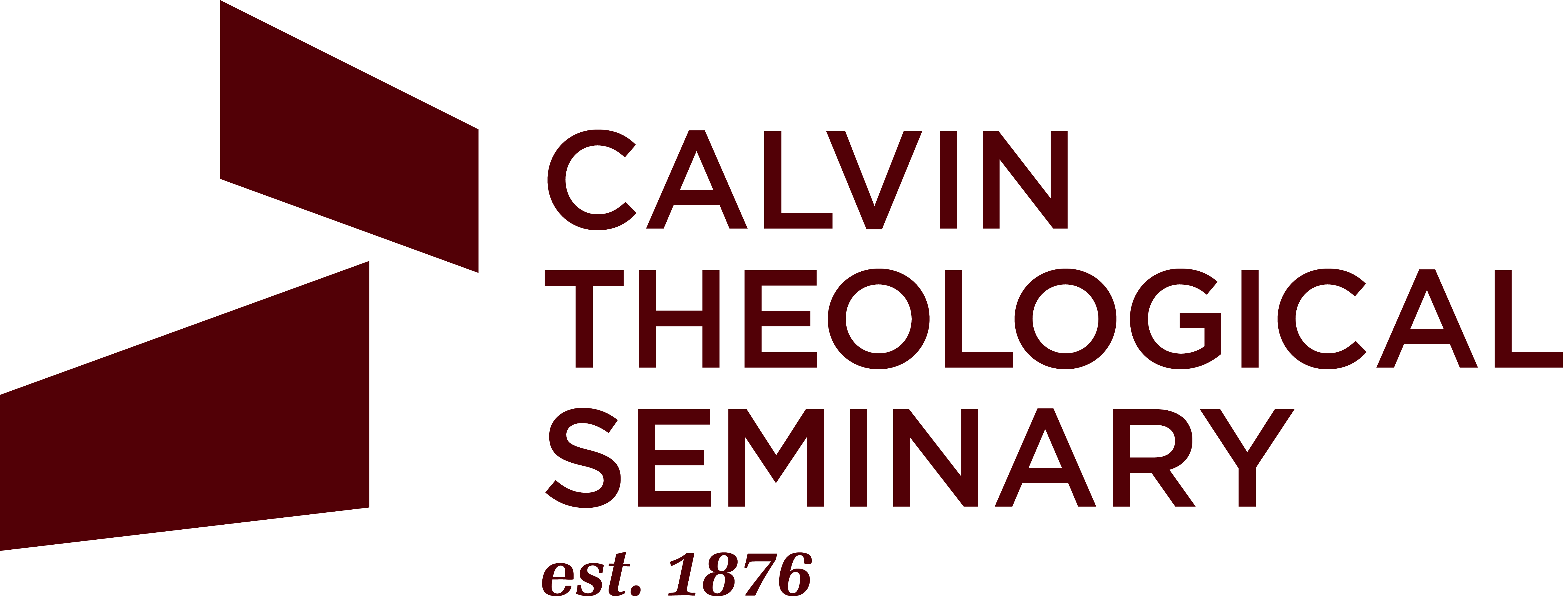Reformed Identity Through The Eyes of a Professor of Philosophical Theology

Published by Sam Ha
Theological Librarian and Curator of the Meeter Center
Professor of Philosophical Theology Dr. Young Ahn Kang and his wife, Hee Sook Choi, have been gifts to Calvin Theological Seminary since Dr. Kang first began teaching with the seminary in 2016. Together, the couple has contributed to making campus the warmly welcoming, deeply faithful, and academically rich environment it is today. Since January 2022, Dr. Kang and Choi have served the seminary remotely from their home in South Korea.
Before the couple moved overseas last year, PhD candidate and Meeter Center curator and theological librarian Sam Ha sat down with Dr. Kang for a milestone interview. Through this interview, Ha and Dr. Kang cover the Reformed tradition, what makes CTS unique, and more. The following are adapted excerpts from this insightful conversation. To view the entire interview, watch here on YouTube.
Sam Ha: Professor, why do you think the Reformed tradition still matters today?
Dr. Young Ahn Kang: If we were to say that there are three big traditions—Eastern Orthodox, Roman Catholic, and Protestant—then out of these three big traditions, the Reformed tradition can be said to belong to the Protestant tradition. Within this Protestant tradition, there are then many traditions. There are Lutheran, Anabaptist, Reformed, or Presbyterian (in Scotland) traditions, as well as Methodist and Baptist traditions.
Although the Reformed tradition shares a lot with the Lutheran tradition, we are talking about the Reformed tradition’s uniqueness. According to Matthias Schneckenburger, a 19th century Swiss Reformed theologian, Lutheran or evangelical theology asks, “How can I be saved?” Conversely, the Reformed tradition asks, “How can I glorify God?” Of course, this question presupposes that I have been saved by the cross and blood of Christ. It asks how a saved person must now live.
This question is about asking how to live for God’s glory with all my life and every aspect of my life. I would like to say that the Reformed tradition still matters today. Although we have a lot to learn from the Roman Catholic tradition and from the Orthodox churches, such as their liturgical traditions and their deep understanding of symbolism, the most distinct contribution that the Reformed tradition can give to the global Church is our understanding that our whole lives belong to God and our lives are a gift from God.
Sam Ha: What are the unique characteristics of the Reformed tradition?
Dr. Young Ahn Kang:
Divine Grace
The Reformed tradition understands this idea that every aspect of our lives is under God’s grace more than any other. For example, Roman Catholicism still separates nature and grace quite significantly, but we say that both nature and grace equally are God’s gift and divine grace. So, in the Reformed tradition, we say that every aspect of our lives belongs to God’s sovereign grace.
Since we interpret our lives by appreciating them as gifts from God, I believe that the Reformed tradition has something to offer to other traditions and the whole world. In that sense, the Reformed tradition is necessary, valid and very beneficial.
Church Polity
Compared with Roman Catholicism and the Orthodox traditions, the Reformed tradition provides room for a greater number of voices through shared governance and decision-making involving pastors, elders, and deacons. Elders and deacons are elected by church members in the Reformed churches.
This has to do with our way of understanding the laying on of hands. In Roman Catholicism or Greek Orthodoxy, the laying on of hands is related to hierarchy and succession. It’s receiving something from above and transferring something to below, as a way of handing down the tradition. In the Reformed tradition, however, ordaining a minister or an elder or a deacon is to dedicate them to God. An important concept in the Reformed tradition is the equality among pastors, elders, and deacons. Just as the Father, the Son, and the Holy Spirit are all God in an equal way. Just as they co-exist in perichoresis, as if they are dancing as one.
The ordained have been raised by the people of God to serve God’s purposes as equal members of the church. They are not higher or lower than other people in the church. If we expand this to families, then husbands and wives are equal. If we expand this to the workplace, then bosses and employees are equal. If we expand this to the whole society, those in leadership and government or those who are in a public office have simply been handed over the rights and commissioned to do their jobs. I think this is a unique contribution of the Reformed tradition.
Sam Ha: What does it mean to study at Calvin Theological Seminary, a place with a Reformed heritage and identity?
Dr. Young Ahn Kang: Calvin Seminary was founded in 1876 in Grand Rapids, Michigan. And it has tried to be faithful to the Reformed tradition.
To define the Reformed tradition in a more familiar way: We believe that the Bible, the Word of God, is the ultimate authority. Neither pastors, believers, nor even synods have the final say. Only the Scriptures have the final authority because they are the Word of God.
When we say we acknowledge the authority of the Word of God, we recognize that God is sovereign over everything and bestows his sovereign grace. This sovereign God calls and nurtures his people by means of the church. This church and God’s sovereignty are important in the Reformed tradition.
The Bible and the Holy Spirit
Interestingly, although the Bible is crucial in this tradition, the Reformed tradition does not fall into biblicism. We don’t fall into biblical literalism because we recognize the Holy Spirit’s ministry. I believe that the Spirit works on three levels in relation to the Bible. This is not what I read somewhere, but something that I realized as I’ve been reflecting.
First, the Holy Spirit inspired the biblical authors to write the Word of God. We call that “inspiration.” Second, the Holy Spirit inspires the person who is reading the Bible, so that they understand. Third, the Spirit helps believers put understanding into practice in their daily lives.
So, because we emphasize the Spirit, we do not fall into literalism. We appreciate the Spirit with the Bible, and the Bible with the Spirit. This interrelationship between the Bible and the Spirit is one of Calvin Seminary’s characteristics.
Emphasis on Responsibility
Although we highlight God’s sovereignty, we also emphasize our responsibility.
We are indeed called according to God’s election, and we are called to be God’s people and his church. But what is important is that God has called us to be sent out to the world, to live as the called ones. In that sense, we emphasize our responsibility.
Sovereignty of God: Church and the World
And although at Calvin Seminary we emphasize the church, we do not become separatists. That is because we believe that the whole world belongs to God and is under God’s sovereignty.
God has allowed his people to live in various spheres, spread out in different places, with the church at the center. Some work in politics, others in education, some in trades. We also belong to our families. So we belong to these places, but we gather together as the people of God at churches to grow in the Word and to worship together.
And those who have been formed by the Word are now sent out to the world. So we don’t emphasize the church or the world at the expense of the other. God has called us to be his people, his church, but we live in the world. We have to live as the people of God in places where God called us to live.
CTS in the Reformed Tradition
Since Calvin Seminary’s founding in 1876, for the last 150 years, there have been changes.
But we have always kept these three traditions: the Word of God, God’s sovereign grace, and the importance of the church. God has called his people to the church, but every place of our lives is where God’s people are called to serve.
We teach with these points in mind at Calvin Seminary. We teach, according to the Reformed tradition, that God reigns in the church and the whole world, and that the whole world is under God’s sovereign grace. We teach and train our seminarians with that spirit in mind. In that sense, Calvin Seminary has been faithful to the Reformed tradition to this day.
Share
Visit Calvin Theological Seminary’s Campus
We can’t wait to host you on campus! Schedule your visit today, or, if you need more time to find a date that works for you, please request information so we can continue the conversation about supporting your calling!
